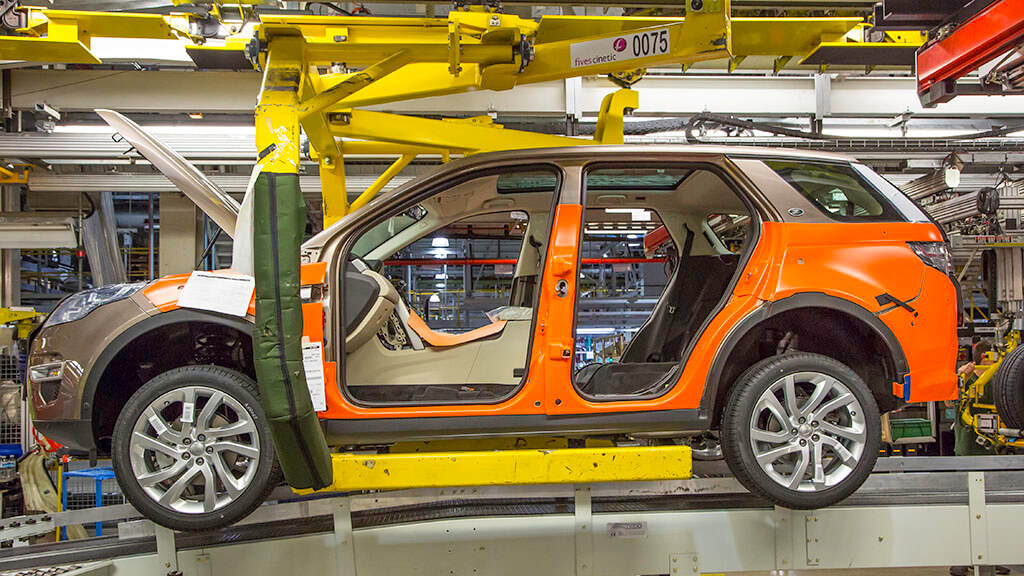A WARNING light is flickering on the dashboard of the UK car industry as it trundles helplessly towards the possibility of a no-deal Brexit.
The British Society of Motor Manufacturers and Traders (SMMT) has sounded the alarm after vehicle output fell to a five-year low in 2018, with just over 1.5 million vehicles produced — 50 percent down on 2017.

The SMMT says any new trade tariffs and supply chain disruption would hurt the industry at home and abroad, with eight in 10 British-made cars currently shipped overseas. The industry’s foreign sales — and job security — would suffer under a hard Brexit, the body says.

SMMT chief executive Mike Hawes said “the risk of crashing out without a deal looking increasingly real” — and said damage from Brexit had already been done. He cited output, investment and jobs as areas which had been hard-hit. The UK automotive industry was on “red alert”, Hawes added.
“Yet this is nothing compared with the permanent devastation caused by severing our frictionless trade links overnight, not just with the EU but with the many other global markets with which we currently trade freely.”
New car sales have fallen by seven percent, the decline in manufacturing was the second successive year of falling output, and Hawes said thousands of jobs were on the line. “We urge all parties to do whatever it takes to save us from no deal,” he said.
The British Government says it will seek the “broadest and deepest possible agreement that delivers the maximum possible benefits for both the UK and EU economies and maintains the strength of our world-leading automotive sector”.
The SMMT position refers to five priorities which it says should provide focus for the government in its negotiations:
Single Market — The government must demonstrate how it intends to secure a future trade agreement with the EU that affords the automotive industry Single Market benefits
Customs — It should prioritise the free-flow of automotive goods at the border to avoid costs, maintain competitiveness and support the just-in-time manufacturing process
Talent — Government must address the needs of the automotive industry to recruit and access talent when assessing how the UK ends freedom of movement and implements new immigration controls
Regulation — Government should demonstrate how existing automotive regulation fits within plans for the Repeal Bill and work through options for how future EU regulation affecting the UK automotive industry can be effectively implemented.
Trade — Clarity is needed on how the UK will treat existing EU Free Trade Agreements and those currently under negotiation.




























